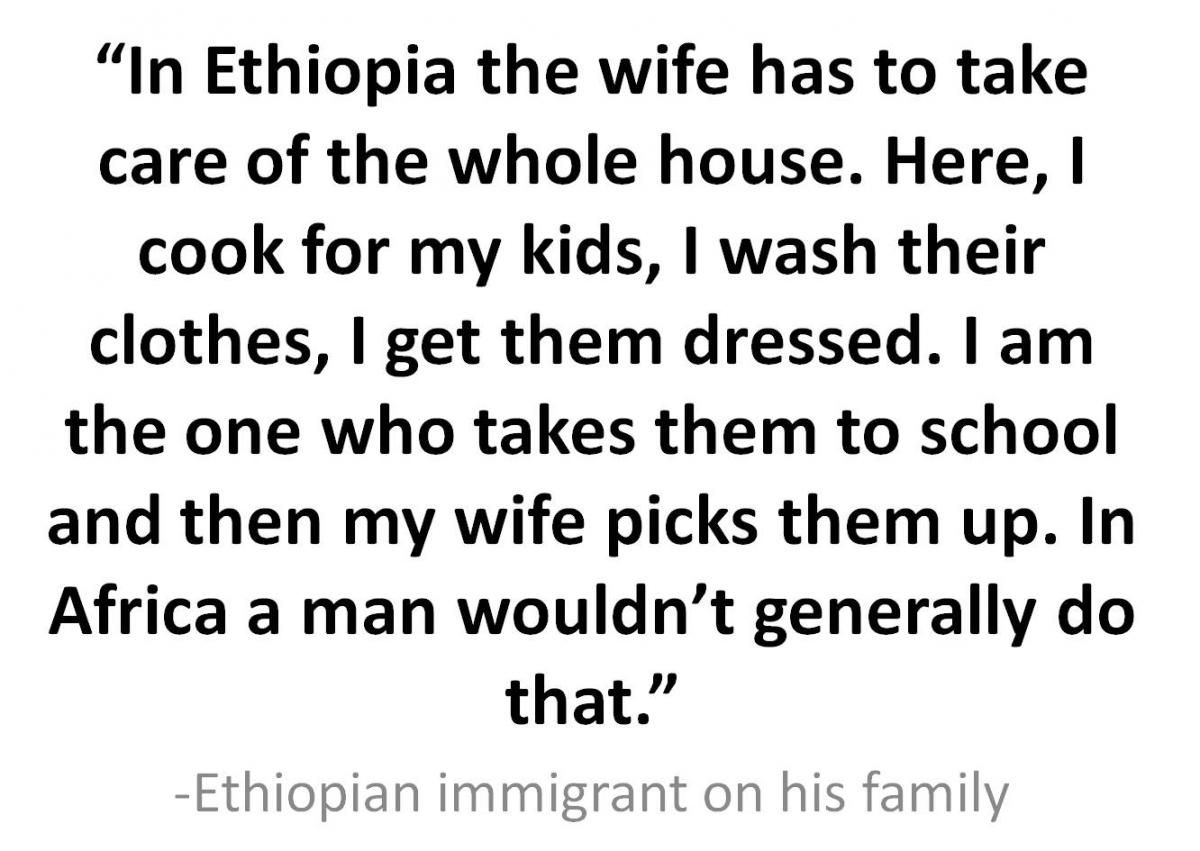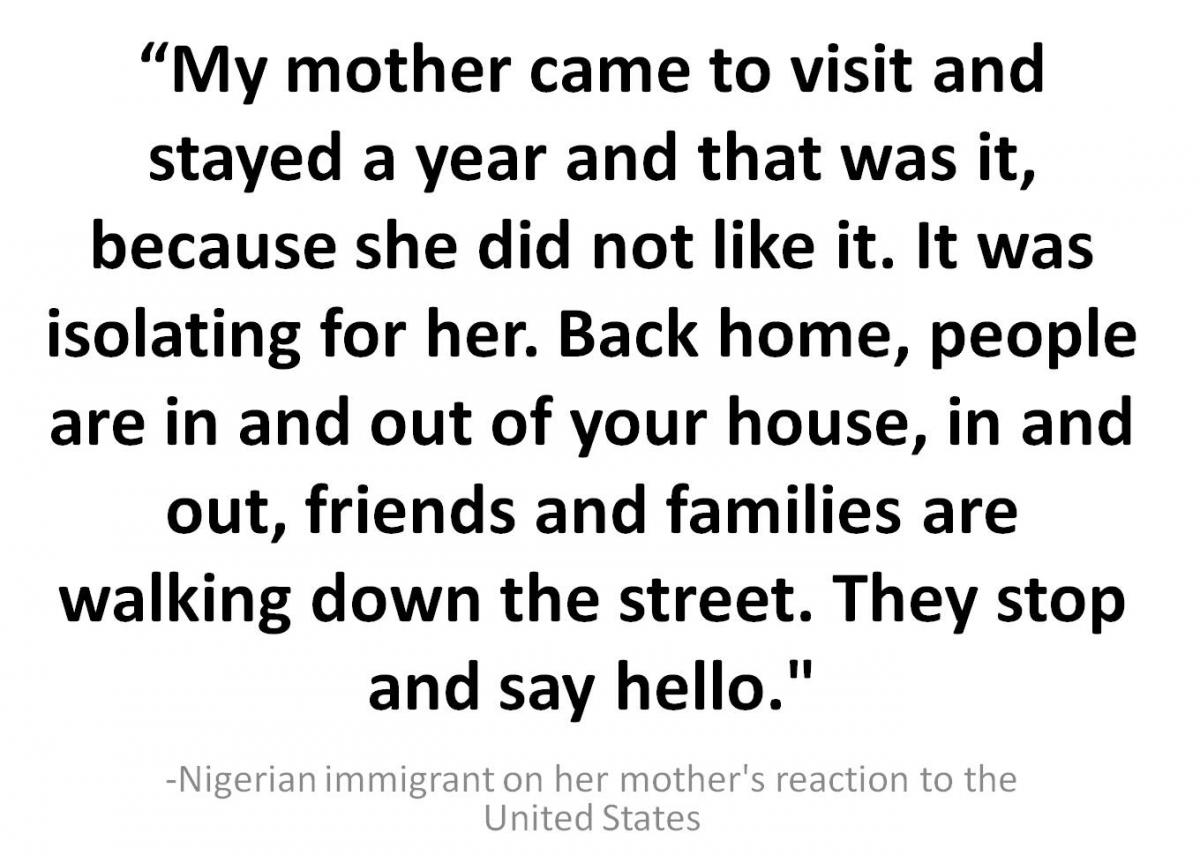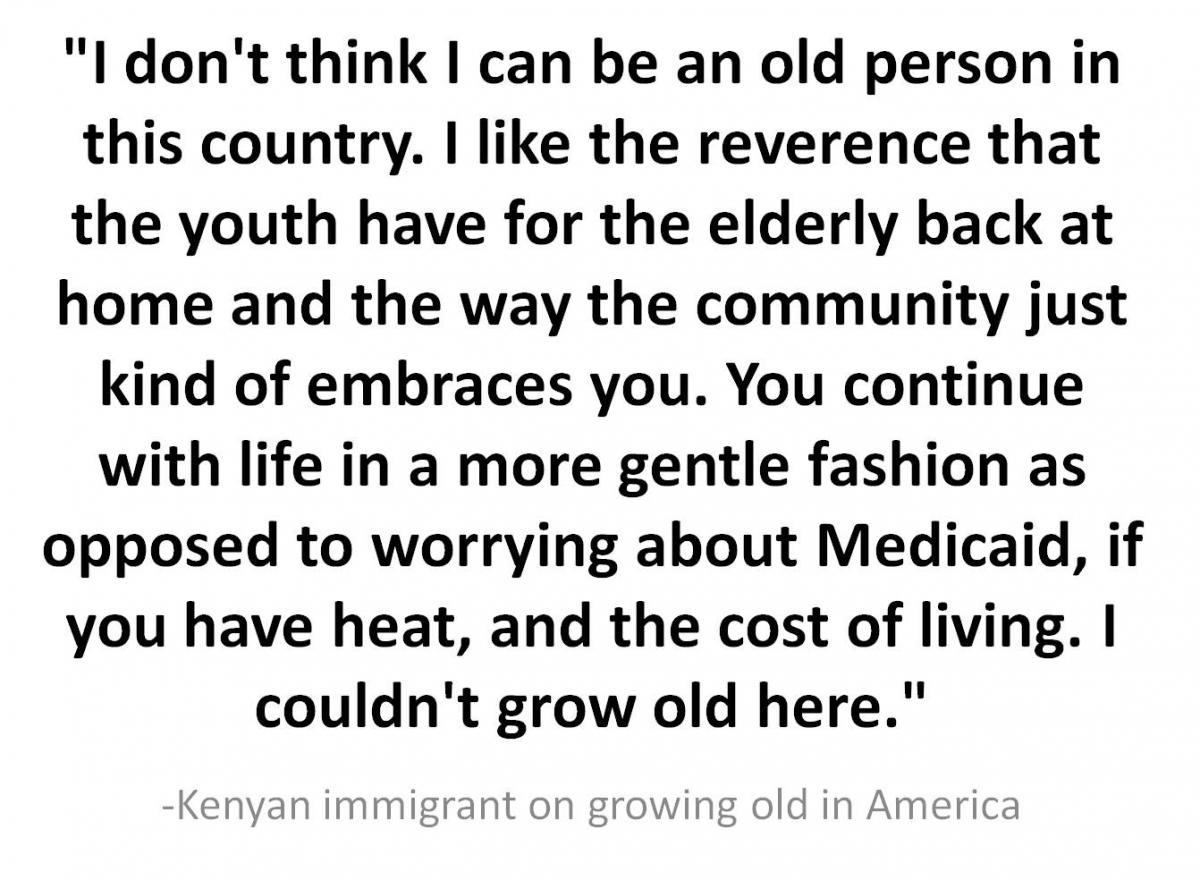Immigration changes roles in the African family for men and women, parents and children, elders and the younger generations.
 Immigration changes not only family structure but also the relationships between household members. Married couples often share both paid work and housework in a more equal way than they would in their country of origin. Consequently, women become active decision-makers in the household. Women immigrants from Africa often welcome this shift, and men seem to adapt well to their wives' new roles.
Immigration changes not only family structure but also the relationships between household members. Married couples often share both paid work and housework in a more equal way than they would in their country of origin. Consequently, women become active decision-makers in the household. Women immigrants from Africa often welcome this shift, and men seem to adapt well to their wives' new roles.
Immigrant parents often wish to slow down the Americanization of their children.  Loss of authority may be countered by steering one’s children toward those of other immigrant families from the same country. Many community events are multigenerational so that children are exposed to the African model of child-rearing. Churches and mosques are another place where children meet others in their community.
Loss of authority may be countered by steering one’s children toward those of other immigrant families from the same country. Many community events are multigenerational so that children are exposed to the African model of child-rearing. Churches and mosques are another place where children meet others in their community.
Most older Africans who come to the U.S. to visit their children and grandchildren have a hard time adapting to the social isolation and choose to return to Africa rather than resettle. In Africa old age is looked forward to since elders are generally highly respected and younger people defer to their wisdom and authority.  Giving up this status to live in an unfamiliar and youth-oriented society is not a popular option.
Giving up this status to live in an unfamiliar and youth-oriented society is not a popular option.
Despite making new lives in the United States, many African immigrants dream of returning home after retirement. That way, in their old age they would once again be surrounded by their extended family. Refugees may not, however, have this option. Some community organizations help older refugees adapt and form new social groups.
